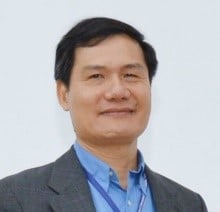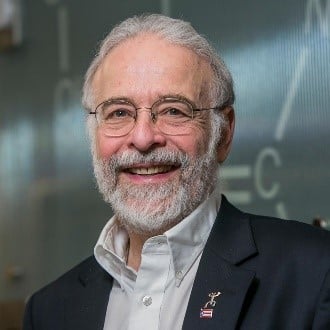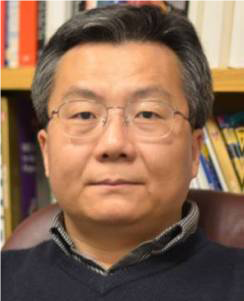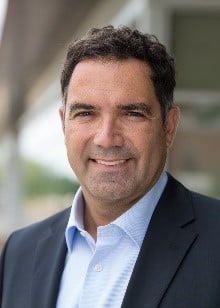
Journal Menu
► ▼ Journal Menu-
- Materials Home
- Aims & Scope
- Editorial Board
- Reviewer Board
- Topical Advisory Panel
- Instructions for Authors
- Special Issues
- Topics
- Sections & Collections
- Article Processing Charge
- Indexing & Archiving
- Editor’s Choice Articles
- Most Cited & Viewed
- Journal Statistics
- Journal History
- Journal Awards
- Society Collaborations
- Conferences
- Editorial Office
Journal Browser
► ▼ Journal BrowserNeed Help?
Announcements
14 September 2021
Materials 4th Webinar | Functional Nanomaterials for Fuel Cell Electrochemistry, 21 September 2021

Fuel cells represent a unique electrochemical energy technology for a sustainable future. To render the technology viable in practical applications, a critical first step is to develop effective catalysts at both the cathode and anode, to reduce the energy barriers of the electron–transfer reactions involved, and ultimately enhance the current density and power output. Within this context, the understanding of the catalyst structures and the unraveling of the electron–transfer mechanisms play an indispensable role in advancing fuel cell electrocatalysis. This entails a multidisciplinary effort, from materials chemistry in the design and engineering of electrode catalysts to spectroscopic assessments of the electron–transfer kinetics, and to theoretical investigations of the catalytic active sites and reaction energetics.
It is therefore a great pleasure and honor to welcome three world-leading experts to join us at the webinar, who have made seminal contributions in the area of functional nanomaterials and fuel cell electrocatalysis. They will showcase recent progress in their laboratories in tackling the varied hurdles of fuel cell electrocatalysis and highlight significant issues for future research.
Date: 21/09/2021 Tuesday (US time) | 22/09/2021 Wednesday (CEST)
Time: 5:00pm PDT | 2:00am CEST | 8:00pm EDT
Webinar ID: 828 6890 4633
Webinar Website: https://materials-4.sciforum.net/
Register for free here:
Program
The webinar will last a maximum of 2 hours and 10 minutes.
|
Speaker/Presentation |
Time in CEST/CET |
|
Prof. Dr. Shaowei Chen Chair Introduction |
2:00-2:05 am |
|
“Novel Materials and Operando Methods for Fuel Cell Technologies” |
2:05-2:35 am |
|
Q&A Session |
2:35-2:45 am |
|
“Intermetallic Nanoparticles: Their Synthesis and Enhanced Electrocatalysis” |
2:45-3:15 am |
|
Q&A Session |
3:15-3:25 am |
|
“Fuel Cells: Present and Future” |
3:25-3:55 am |
|
Q&A Session |
3:55-4:05 am |
|
Prof. Dr. Shaowei Chen Closing of Webinar |
4:05-4:10 am |
Chair
|
Prof. Dr. Shaowei Chen Department of Chemistry and Biochemistry, University of California Santa Cruz |
Prof. Dr. Shaowei Chen finished his undergraduate studies in China in 1991, with a B.Sc. degree in Chemistry from the University of Science and Technology of China, and then went to Cornell University, receiving his M.Sc. and Ph.D. degrees in 1993 and 1996, respectively. Following a postdoctoral post at the University of North Carolina at Chapel Hill, he started his independent career at Southern Illinois University in 1998. In summer 2004, he moved to the University of California in Santa Cruz. He is currently a Professor of Chemistry and the Faculty Director of the UCSC COSMOS program. Prof Dr. Shaowei Chen’s research is focused on functional nanomaterials and their applications in electrochemical energy technologies and antimicrobials. Thus far, he has published 376 articles, with an h-index of 79. |
Speakers
|
Prof. Héctor D. Abruña Department of Chemistry and Chemical Biology, Cornell University (USA) |
Prof. Hector D. Abruña, Émile M. Chamot Professor of Chemistry, is the director of the Center for Alkaline Based Energy Solutions (CABES) and the Energy Materials Center at Cornell (emc2). He completed his graduate studies with Royce W. Murray and Thomas J. Meyer at the University of North Carolina at Chapel Hill in 1980 and was a postdoctoral research associate with Allen J. Bard at the University of Texas in Austin from 1980 to 1981. After a brief stay at the University of Puerto Rico, he joined Cornell in 1983. He was Chair of the Department of Chemistry and Chemical Biology from 2004 to 2008. Prof. Abruña has been the recipient of numerous awards, including a Presidential Young Investigator Award, A. P. Sloan Fellowship, J. S. Guggenheim Fellowship, and J. W. Fulbright Senior Fellow. He is the recipient of the Electrochemistry Award for the American Chemical Society (2008), and the C. N. Reilley Award in Electrochemistry, 2007. He was elected Fellow of the American Association for the Advancement of Science in 2007, member of the American Academy of Arts and Sciences in 2007, and Fellow of the International Society of Electrochemistry in 2008. He received the D. C. Grahame Award from the Electrochemical Society in 2009, the Faraday Medal from the Royal Society in 2011, the Brian Conway Prize from the International Society of Electrochemistry in 2013, and he was named Fellow of Electrochemical Society in 2013. In 2017, he was the recipient of the Gold Medal of the International Society of Electrochemistry. He was elected member of the National Academy of Sciences (2018) and was awarded the A. J. Bard Award of the Electrochemical Society (2019), the Frumkin Medal of the International Society of Electrochemistry (2019), and the American Chemical Society Award in Analytical Chemistry (2021). Prof. Abruña is the co-author of over 525 publications (h-index = 93) and has given over 650 invited lectures worldwide. He considers his 56 Ph.D. students and 75 post-doctoral associates his most important professional achievement. |
|
Prof. Shouheng Sun Department of Chemistry, Brown University (USA) |
Prof. Shouheng Sun received his B.Sc. from Sichuan University (China), M.Sc. from Nanjing University (China), and Ph.D. from Brown University (USA). He joined the IBM T. J. Watson Research Center (Yorktown Heights, New York, USA), first as a postdoctoral fellow (1996–1998), and then as a research staff member (1998–2004). In 2005, he returned to Brown University as a tenured Associate Professor and was promoted to Full Professor in 2007. He is now the Vernon K. Krieble Professor of Chemistry and Professor of Engineering. He serves as an Associate Editor of the Royal Society of Chemistry Journals Nanoscale and Nanoscale Advances, and is a Fellow of the Royal Society of Chemistry. His main research interests are in chemical synthesis and self-assembly of nanoparticles for catalytic, magnetic, and biomedical applications (h-index 131). |
|
Prof. Vojislav Stamenkovic Department of Chemical and Biomolecular Engineering and Department of Chemistry, University of California Irvine (USA) |
Prof. Vojislav Stamenkovic is a Professor at the University California, Irvine, Department of Chemical and Biomolecular Engineering and Department of Chemistry, and Staff Scientist, Technical Leader and Principal Investigator at the US Department of Energy’s Argonne National Laboratory in Argonne, Illinois. He earned his Ph.D. degree in physical chemistry from the University of Belgrade in 2001, after spending three years as a visiting scientist at the University of California at Berkeley. From 2002 to 2005, he was a postdoctoral and staff scientist within the Materials Sciences Division at the Lawrence Berkeley National Laboratory, and from 2006, he was a staff scientist in the Materials Science Division of Argonne National Laboratory, where he has conducted multidisciplinary research related to materials for electrochemical systems. Prof. Stamenkovic is an expert in the design and synthesis of functional materials for electrochemical applications, primarily in the fields of polymer electrolyte membrane fuel cells, electrolyzers, and batteries. His research interests include materials for energy conversion and storage, electrocatalysis, and spectroelectrochemistry, as well as functional biomaterials. In 2004, Prof. Stamenkovic received a Recognition Award from Lawrence Berkeley National Laboratory for the implementation of fundamental science into nanoscale applications. In 2012, he was awarded the Distinguished Performance Award from the University of Chicago, and in 2014, he received a prestigious US DOE Hydrogen and Fuel Cells Award in recognition of his outstanding contributions to catalysts R&D. He has published over 130 articles and book chapters, for which he has received over 17,000 citations with an h-index of 55. He has authored over 200 presentations and has been an invited plenary and keynote speaker more than 100 times at major conferences, symposia, and seminars. His work has been published in high impact journals, such as Science, Nature Materials, and Angewandte Chemie, and is often featured in the headlines of Lawrence Berkeley National Laboratory and Argonne National Laboratory. |
For any questions about the webinar, please send an email to materials.webinar@mdpi.com.








